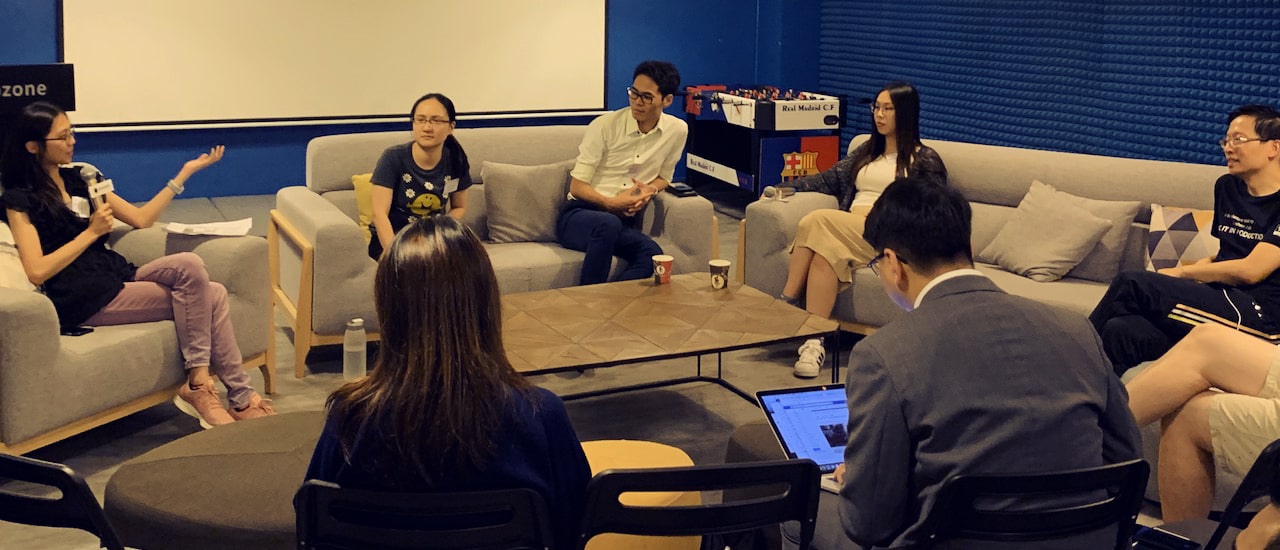The tech industry in Hong Kong and across the world remains male dominated. Why aren’t there more women and what can be done to fix this?
To mark International Girls in ICT Day, which aims to encourage girls and young women to work in information and communications technology, the Internet Society Hong Kong Chapter organized an event to tackle these questions. Ladies X Tech X Gents: How Are the Three Compatible? brought together four successful developers to lead the dialogue:
- Ivy Luk, Sales Engineer at Clare.AI (an Artificial Intelligence digital assistant solutions provider)
- Emma Wong, Organiser of Google Developer Group and Women Techmakers Hong Kong
- May Yeung, Director of Internet Society Hong Kong Chapter
- Rick Mak, Co-Founder of Oursky (a web and mobile application development company)
Why are there so few women in the tech industry?
A common observation among the speakers was the high dropout rate of women developers in the tech industry – amid the already low women to men ratio. The speakers noted that it drops from roughly 3:7 at school to 1:10 at work.
One of the main reasons women leave the tech industry is the gender stereotype that it is a masculine profession. From an early age, this stereotype is ingrained by parents in Hong Kong, who discourage their daughters from studying computer science and engineering courses. Even when women enroll in tech-related courses, many do not consider pursuing a career in IT.
Why do we want women in the tech industry? Are there “women challenges” in the industry?
Studies have shown that diversity in companies is important. The multiple perspectives of a diverse team are key to innovation. (For example, a women’s perspective is needed since products are not sold to men only.) Also, women teammates may bring in a different culture and work atmosphere that can boost team morale.
The challenge for women, however, is dealing with macho and misogynist culture within the industry. Speakers also noted that women and men have distinctive communication styles, which means the workplace must be committed to mutual learning and listening to each other.
Another challenge commonly faced by women is the work-family balance due to the high pressure and heavy workload of some technical positions. But Rick Mak pointed out that this is a challenge for both women and men. As a dedicated father who believes that men should take on their share of parenting duties, he too struggles to balance work and family.
What can we do to encourage women to enter the tech industry?
As the tech industry begins to recognise the benefits of diversity, some companies have set a lower recruitment requirement for female developers. The female speakers all disapproved of this approach. They considered this discrimination against women and a reinforcement of the stereotype that women are less competent.
Instead of being offered benefits like the period leave, female employees would generally prefer to have greater C-level support. One of the participants pointed out that all-male management teams can sometimes be insensitive to women’s needs, which could be as simple as providing separate female and male toilets at the office.
Speakers suggested that having women in senior leadership roles would positively encourage other women to join a company, particularly if it is supportive of advancing women’s careers. Women in management positions are also important role models for their juniors.
Another important aspect of getting more women into tech roles today is building a stronger female developer community, where women can help and support each other in navigating the industry, and provide guidance to non-technical women who are interested in joining. In the end, it is all about mutual respect and understanding. The sometimes hostile environment in Hong Kong’s IT industry has its root in gender stereotypes imposed on both women and men. Sometimes, we think too much about a person’s gender roles rather than his or her individual qualities – in other words, people get labeled as either a man or a woman and that is it. At work, let us be impressed by a person’s work ability rather than his or her gender.
Help close the digital gender divide! Join SIG Women, which is open to everyone.
